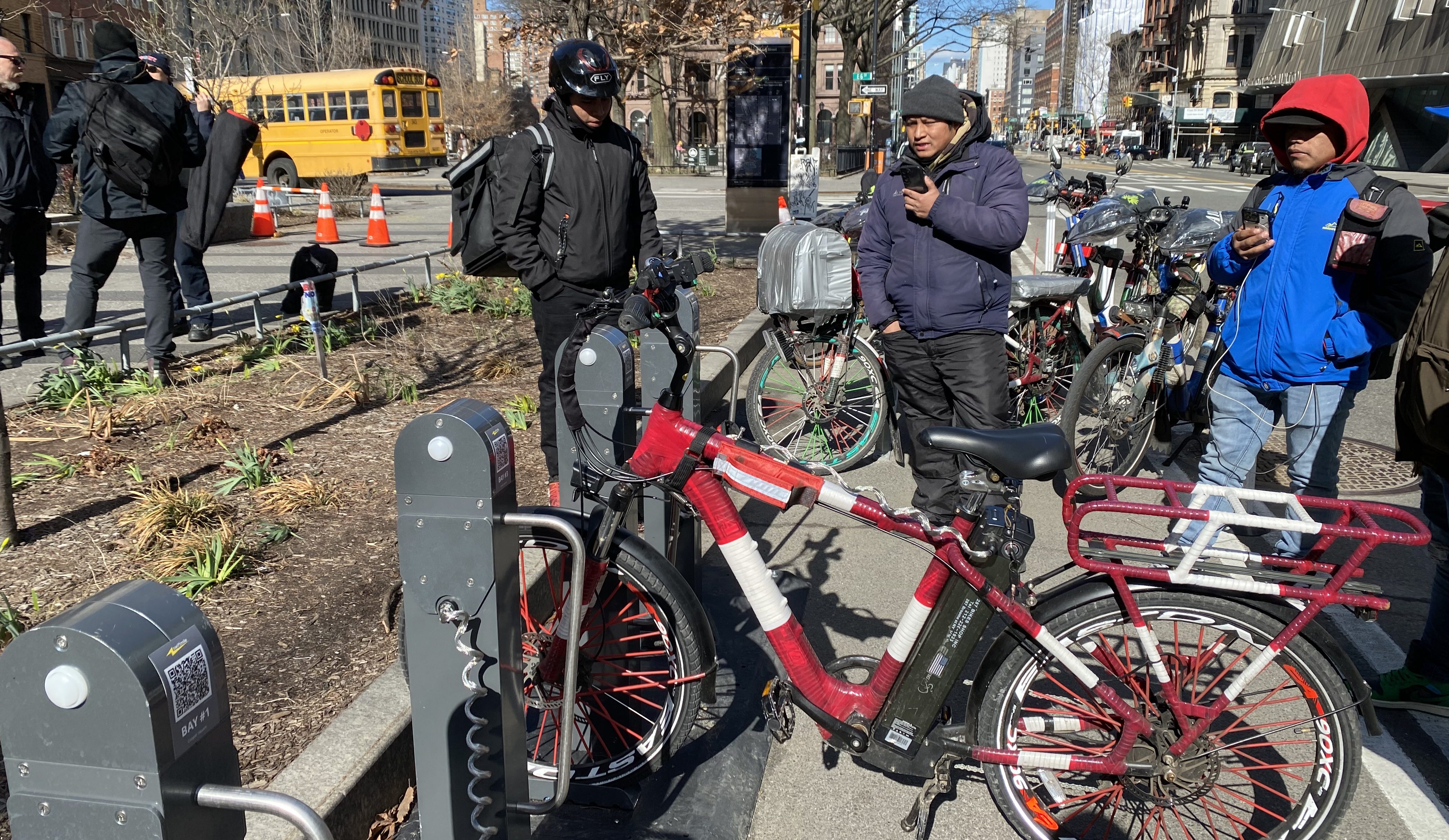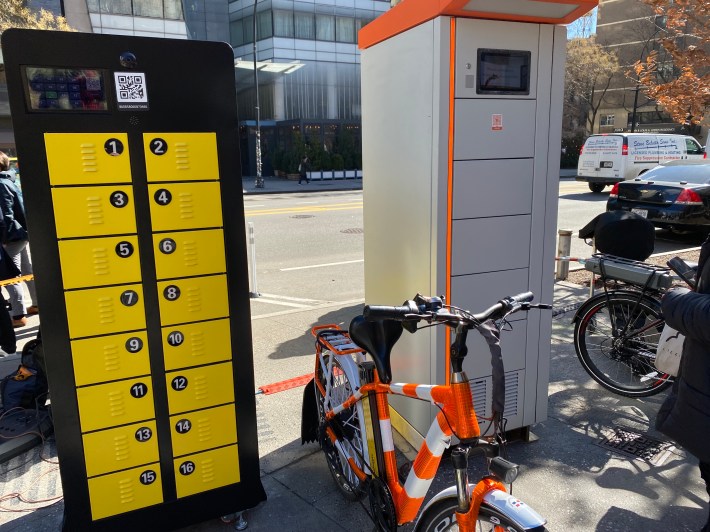Jobs
DOT E-Bike Charging Pilot is a Success as City Plans More – Streetsblog New York City

The city’s e-bike charging pilot for delivery workers successfully cut the number of cyclists recharging at home and having to lug around heavy spare batteries — evidence that the program is ready to expand, said the Department of Transportation.
The six-month, first-of-its-kind pilot had 118 participants — all of whom are delivery workers for the app giants — who charged batteries at home 35 percent less often and halved their use of spare batteries, according to a DOT report [PDF] the agency quietly published last week.
The report also outlined that DOT will extend the effort early next year with charging hubs at 173 locations near 53 public housing complexes with $25 million in federal grant funding.
“Delivery workers have one of the toughest jobs in New York City and our pilot illustrated the strong demand for safe and accessible outdoor e-bike charging,” DOT Commissioner Ydanis Rodriguez said in a press release. “Safer charging practices are integral to a cleaner and more sustainable future and this type of program can support the growth in e-bikes while also protecting all New Yorkers from deadly fires.”
The program launched in Cooper Square in March and contracted three firms to place cabinets for swapping empty batteries with full ones, along with docks where bikes could eventually plug in, at five locations in Manhattan and Brooklyn.
The agency sought to provide safe charging options for lithium-ion batteries of the e-bikes on which app-based deliveristas rely, following a flare up of fires tied to the power packs in recent years, and to encourage more of the laborers to switch back to e-bikes after the rising popularity of gas-powered mopeds.
Activists for the more than 60,000 delivery workers hailed the results.
“DOT’s pilot shows that improving access to battery charging and swapping services increases app delivery worker safety by reducing at-home charging,” said Ligia Guallpa, executive director of Worker’s Justice Project and co-founder of its Los Deliveristas Unidos campaign. “These exciting early results show that transportation alternatives that have the potential to protect our planet can and should be rooted in 21st-century innovations that protect our workers.”
Two companies, Popwheels and Swobbee, provided the battery-swap kiosks, and a third firm, Swiftmile, installed the charging docks, though the former method of recharging was more popular, according to DOT stats.
The agency logged 12,100 battery swaps, but only 1,300 charging sessions at the docks over the half-year project, and officials plan to extend the former tech until February. Baruch Herzfeld, CEO of Popwheels, said his firm plans to build out the exchange stations.
“We demonstrated that the city can build an e-bike battery swap network, but we want to build one now,” he told Streetsblog.

Delivery workers previously had to bring spare batteries to survive a grueling day ferrying food for the city’s elite, and often took their bikes on the subway home at the end, but the pilot made them feel more productive and safer by not having to refuel their devices in their apartments.
“At scale, this will make the city much safer and will increase the bicycle usage,” said Herzfeld. “It used to be when they worked, they ran out of battery, took their bike on the train and went home.”
The details of DOT’s next project with the New York City Housing Authority are still to be determined, according to DOT spokesperson Will Livingston. Locations near public housing campuses could get battery-swapping stations, docks, or both, but the facilities will be open to NYCHA residents and the general public.
Popwheels and Swobbee’s cabinets have cleared the Fire Department’s safety standards and plan to set up on private property.
Herzfeld said his company plans to set up 1,000 of the stations with slots for 25 batteries each over the coming two years, and compared the effort to the early days of Citi Bike, and how larger adoption could change the city’s transportation network by making it easier to safely ride and refuel e-bikes.
“The goal should be to increase e-bike usage and to make sure battery charging and storage is done outside of dangerous areas,” he said.










